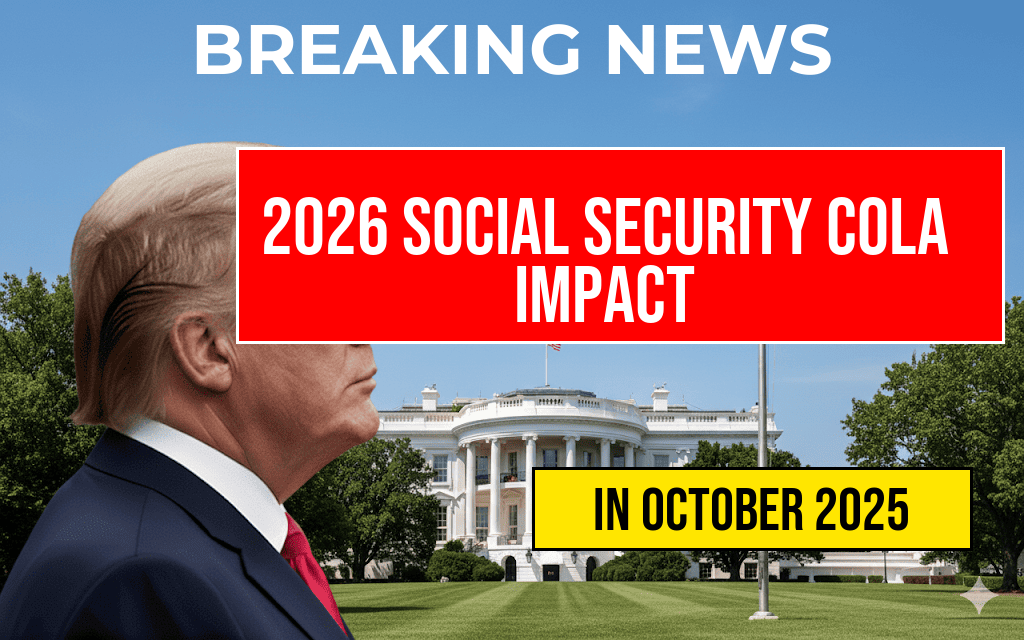The looming threat of a government shutdown could have far-reaching consequences for Social Security recipients, potentially creating a two-tier system that splits current beneficiaries from future applicants. While those already receiving benefits are expected to continue collecting without interruption, new applicants may face significant delays or complete inaccessibility to benefits during a shutdown period. This divide risks undermining the stability of the social safety net for millions of Americans relying on predictable income from the government. As lawmakers debate funding extensions, experts warn that the consequences could extend beyond administrative inconveniences, affecting the financial security of vulnerable populations and complicating retirement planning for future beneficiaries.
How a Government Shutdown Could Impact Social Security Processing
Funding gaps triggered by congressional disagreements often lead to partial government shutdowns, where non-essential services are temporarily halted. Social Security operations, however, usually fall into a complex gray area. During recent shutdowns, the Social Security Administration (SSA) has managed to continue processing and delivering benefits for current recipients thanks to mandatory funding provisions. Nevertheless, several key functions, particularly those related to new applications, may face delays or suspension.
Existing Beneficiaries Remain Protected
Current Social Security beneficiaries are expected to continue receiving their payments, as the SSA prioritizes the distribution of benefits for those already enrolled. This protection stems from the mandatory funding structure established by law, which typically ensures that scheduled benefit payments are not disrupted by temporary government funding lapses. Nevertheless, some administrative services, such as responding to inquiries or issuing replacement documents, could experience delays or reduced staffing levels.
New Applicants Face Complete Delays
In contrast, new applications for retirement, disability, or survivor benefits are more vulnerable to shutdown-related disruptions. Without federal funding, the SSA may pause processing new claims entirely, causing a backlog that could extend for weeks or even months. This situation creates a stark disparity: while current beneficiaries maintain access to their benefits, individuals planning for retirement or needing immediate assistance could face significant financial uncertainty.
Implications for Future Beneficiaries and the Broader Social Safety Net
The potential division raises questions about the fairness and sustainability of the social support system. Those who have paid into the system and rely on benefits are protected, but incoming beneficiaries may find themselves stranded in bureaucratic limbo. This split could undermine public confidence in the government’s ability to deliver promised benefits and complicate retirement planning for younger workers who anticipate drawing Social Security in the coming years.
| Stakeholder | Impact |
|---|---|
| Existing Beneficiaries | Continued benefit payments; administrative delays possible but unlikely to interrupt payments |
| New Applicants | Complete processing delays; potential backlog of months; inability to access benefits temporarily |
| Future Retirees | Uncertainty in retirement planning; possible financial hardship if delays persist |
Legal and Political Context
The federal government’s authority to fund Social Security programs is established through law, which generally shields benefit payments from shutdown-related interruptions. However, the administrative functions—such as processing new claims and conducting outreach—are subject to discretionary funding appropriations. During past shutdowns, the SSA has often managed to uphold benefit payments for current recipients, but new applications and related services have suffered delays.
Legislators remain divided over broader budget issues, including funding for agencies that handle social welfare programs. The federal budget process continues to be a contentious arena, with negotiations often spilling into partisan disagreements that threaten to halt non-essential government functions.
Potential Solutions and Mitigation Strategies
Experts suggest that lawmakers could mitigate the impact of a shutdown on Social Security services by passing targeted funding bills or using emergency measures to ensure the processing of new claims. Some advocates call for legislative reforms that guarantee uninterrupted access for all aspects of Social Security, regardless of government funding status. Additionally, technological enhancements and increased staffing could help process applications more efficiently once funding resumes.
Public Awareness and Preparation
- Applicants are advised to submit claims early to avoid delays.
- Beneficiaries should monitor official SSA channels for updates.
- Financial planning should consider potential delays, especially for those approaching retirement age.
Looking Ahead
The risk of a government shutdown underscores the fragility of the social safety net and the importance of sustained legislative consensus. While current beneficiaries are likely to remain protected, the uncertainty faced by new applicants and future retirees highlights the need for reforms that insulate critical social programs from political brinkmanship. As negotiations unfold, millions of Americans await clarity on whether their access to vital benefits will be preserved or compromised during a possible government closure.
Frequently Asked Questions
What are the potential impacts of a government shutdown on Social Security applicants?
A government shutdown could cause complete delays for new Social Security applicants, preventing them from receiving benefits until funding is restored.
Will current Social Security beneficiaries be affected by a government shutdown?
No, existing beneficiaries will remain protected and continue to receive their benefits without interruption during a government shutdown.
How does the risk of a government shutdown create a split among Social Security recipients?
The split arises because existing beneficiaries are safeguarded, while new applicants face complete delays in receiving benefits.
What are the reasons behind the delays for new Social Security applicants during a shutdown?
The delays are due to the lack of funding and administrative disruptions caused by the government shutdown, which halt processing of new applications.
Is there any way for new Social Security applicants
to avoid delays during a government shutdown?
Currently, there are limited options to avoid delays. Applicants are advised to stay informed through official Social Security channels and plan accordingly for potential processing delays.










